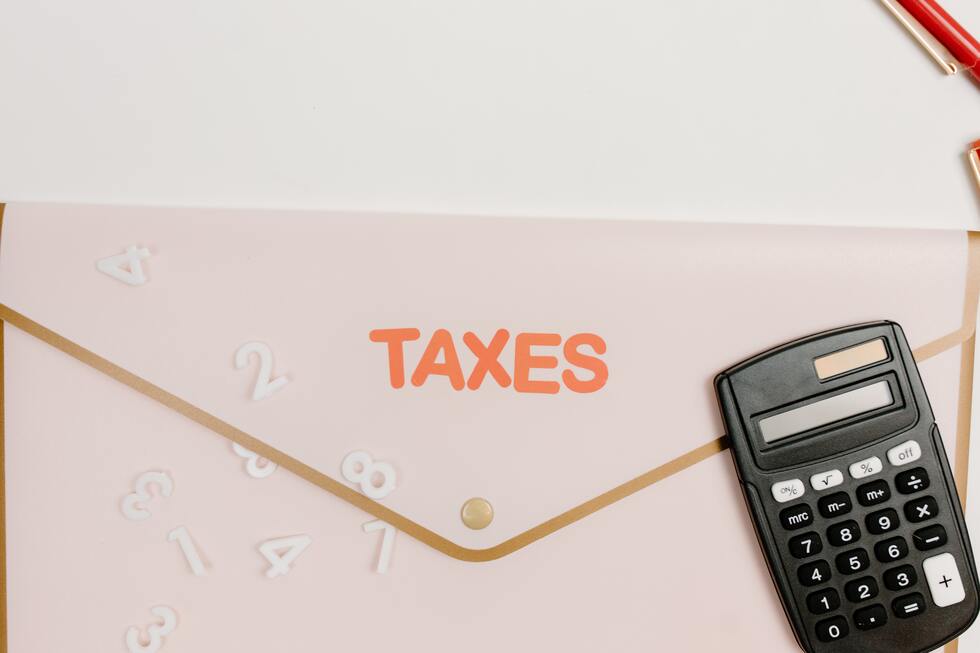The Difference Between Form 4868 and Form 2350

Filing taxes as an American abroad presents unique challenges that domestic taxpayers never face, particularly when it comes to meeting filing deadlines while qualifying for special exclusions. The choice between Form 2350 and Form 4868 can determine whether you successfully claim the foreign earned income exclusion or face substantial penalties for improper filing.
Understanding which extension form applies to your specific situation as an expat is crucial for maintaining tax compliance while maximizing your eligible deductions.
Key points to take away
-
Form 4868 provides a standard automatic extension until October 15 for all taxpayers
- Form 2350 offers a specialized extension for expats waiting to meet foreign earned income exclusion requirements
- Neither form extends the deadline for paying taxes owed
- Form 2350 requires IRS approval and is not automatically granted
- Choosing the wrong form can result in significant late filing penalties and missed exclusion opportunities
Breaking down the purpose of each form
The Internal Revenue Service provides different extension options to accommodate various taxpayer situations, but these forms serve distinctly different purposes. While both forms extend your time to file your income tax return, they target different circumstances and offer varying levels of protection for American taxpayers.
What is Form 4868 used for?
Form 4868 serves as the universal extension form available to any taxpayer who needs additional time to prepare their individual income tax return. This automatic six month extension moves your filing deadline from April 15 to October 15 without requiring special justification or IRS approval.
- General filing delays – When you need more time to gather documents, work with a tax professional, or complete complex tax situations, regardless of your location
- Automatic approval – The IRS automatically grants this extension if you file the form by the original due date and meet basic requirements
- Standard extension period – Provides exactly six months from the original filing deadline, extending most returns to October 15
- No geographic restrictions – Available to all US taxpayers, whether living domestically or abroad
- Simple qualification – Requires no special tests or foreign residency requirements to obtain
NOTE! Because you’re living abroad, you already have an automatic two-month extension to June 16, 2025 (since June 15 falls on a Sunday) before Form 4868 is even required. File Form 4868 on or before that date if you want the further automatic extension to October 15, or you can use our free extension service, but interest still accrues on any unpaid balance from April 15.
What is the Form 2350 used for?
Form 2350 represents a highly specialized extension form designed exclusively for US citizens and resident aliens abroad who need additional time beyond the standard extension to qualify for the foreign earned income exclusion or foreign housing exclusion. This form addresses the unique timing challenges faced by expats who may not meet the required physical presence test or bona fide residence test by normal filing deadlines.
The IRS created this discretionary extension specifically for taxpayers who expect to qualify for special tax treatment under these exclusions but need more time to satisfy the stringent day-counting or residency requirements that determine eligibility.
Special cases for expats: can’t claim the FEIE yet?
The foreign earned income exclusion represents one of the most valuable tax benefits available to Americans living abroad, but qualifying requires meeting specific time-based tests. Understanding these requirements helps determine whether Form 2350 is necessary for your tax situation.
| Qualification | Requirement | Timeline | Best for |
|---|---|---|---|
| Physical Presence Test | 330 full days outside the US in any 12-month period | Rolling 12-month window | Digital nomads, frequent travelers, and new expatriates |
| Bona Fide Residence Test | Establish bona fide residence in a foreign country for an uninterrupted period, including a full tax year | Must include the entire tax year | Long-term expats, permanent relocations |
| Qualification | Excludes up to $126,500 (tax year 2024) / $130,000 (tax year 2025) of foreign-earned income when you file Form 2555 | ||
These tests determine your eligibility for excluding up to $130,000 (tax year 2025) of foreign-earned income from federal taxation when filing Form 2555. The strict nature of these requirements often creates timing conflicts with standard tax filing deadlines, making Form 2350 essential for many expats who relocated partway through the tax year.

Extending your US tax deadline to December 15 (no Form 2350 required)
- File Form 4868 by June 16, 2025 (if you’re abroad; April 15 if you’re stateside) to secure the automatic six-month extension to October 15.
- Submit a written request to the IRS by October 15 explaining specific circumstances that require an additional two-month extension beyond the automatic period.
- Provide detailed justification in your letter request, including reasons such as waiting for foreign tax documents, complex international business arrangements, or the host country’s tax assessment delays.
- Include your taxpayer identification information and clearly state the requested extension date of December 15 in your correspondence.
- Send the request to the appropriate IRS processing center for your geographic location, using certified mail or trackable delivery service.
- Understand this is discretionary – the IRS may approve or deny this additional extension based on the merit of your circumstances.
- Prepare for potential denial by having your tax return ready to file immediately if the IRS rejects your December 15 extension request.
What if you owe taxes as an expat?
Neither Form 4868 nor Form 2350 extends the deadline for paying income taxes owed to the federal government, creating potential complications for expats who need filing extensions.
- Payment remains due April 15 – Regardless of which filing extension you obtain, any taxes owed must be paid by the original due date to avoid interest and failure to pay penalties.
- Estimate your tax liability – Calculate your expected tax bill using previous years’ returns, current income information, and potential foreign exclusions to determine payment amounts.
- Make provisional payments – Submit estimated tax payments by April 15, even if you cannot complete your actual tax return due to FEIE timing requirements.
- Avoid interest charges – The IRS charges interest on unpaid balances from the original due date, regardless of valid filing extensions.
- Consider estimated tax payments – Make quarterly payments throughout the tax year if you expect to owe significant amounts, reducing the burden at filing time.
- Explore tax amnesty programs – Some expats may qualify for special programs like the Streamlined Filing Compliance Procedures if they have unfiled returns.
- Plan for foreign tax credits – If you pay taxes in your host country, these may offset US tax obligations when properly claimed on your return.
What if you miss the extension deadline, or the IRS says no?
Failing to file an extension request or receiving a rejection from the IRS triggers immediate consequences that can significantly impact your tax situation and financial obligations. The IRS imposes a late filing penalty of 5% of your unpaid taxes for each month your return is late, up to a maximum of 25% of your total tax bill, which can quickly escalate into substantial amounts for expats with significant income. Additionally, you’ll face late payment penalties of 0.5% per month on any taxes owed, plus interest that compounds daily from the original due date, creating an expensive situation that worsens with each passing month.
The situation becomes particularly complex for expats who were planning to claim the foreign earned income exclusion but now cannot due to missed deadlines or rejected extension requests. Without the proper timing to meet either the bona fide residence test or the physical presence test, you lose access to excluding up to $130,000 (2025) of foreign-earned income, potentially resulting in thousands of dollars in additional tax liability that could have been avoided with proper extension planning.
Furthermore, if your Form 2350 request is denied, you must file your tax return immediately to minimize additional penalties, even though you may not yet qualify for the exclusions you were hoping to claim, potentially requiring an amended return later once you do meet the qualification requirements.
Still not sure which form you need?
Navigating the complexities of expat tax obligations and choosing between Form 4868 or Form 2350 requires specialized knowledge that most taxpayers don’t possess.
Taxes for Expats helps Americans abroad understand the difference between Form 4868 and Form 2350. Our expertise can help you avoid costly mistakes, ensure proper filing deadlines, and develop strategies that align your tax obligations with your international lifestyle and career goals.
Create your account and get professional help

FAQ
Neither Form 2350 nor Form 4868 moves the April 15 payment deadline, only the filing date.
Form 2350 is discretionary; the IRS must review and accept it before your later filing date applies.
The IRS accepts Form 4868 through its regular e-file channels, and you simply tick the “out of country” box to retain the automatic two-month grace period before the six-month extension kicks in.
Form 2350 has been e-filable via the IRS MeF platform since tax year 2022, and both professional and some consumer packages already support it. Check your software’s 2024-2025 feature list rather than mailing a paper form.
Yes, using IRS Direct Pay, EFTPS, or credit/debit cards lets you make a payment that automatically generates a Form 4868 extension confirmation.



